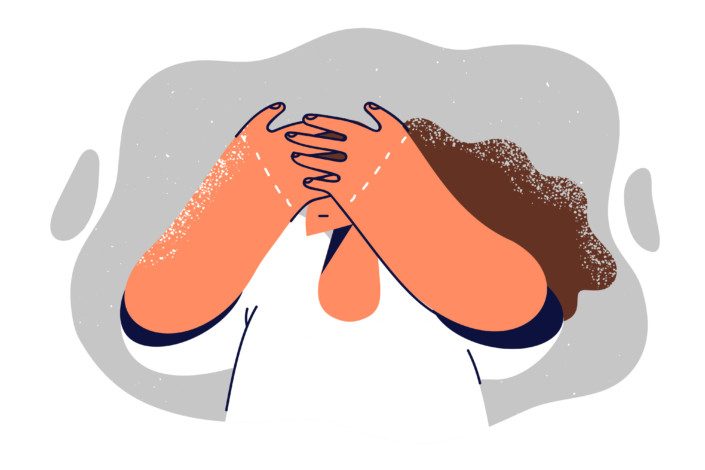“Journalism and trauma” is a five-part series from Reporters Without Borders (RSF) exploring the impact of psychological trauma on journalists. This second article identifies trauma symptoms and discusses their effects on professional capacities.
In 1998, a reporter who covered the China Airlines Flight 676 crash in Taiwan shared a harrowing account with the China Television Network: “In the first scene, many bodies were blown into pieces in mid-air. I couldn’t tell whether it was mud or corpse debris under my feet.” Reporters who covered the earthquakes in Yunnan and Sichuan, China, reported feeling unstable ground beneath their feet long after the disasters had ended.
Many journalists work in regions frequently affected by natural disasters, conflicts or crime, in which they are at risk of being physically or mentally injured. They also encounter high levels of stress daily. To try to protect their mental health while still continuing their professional duties, journalists and their organisations should become familiar with trauma-informed care in order to develop resilience and early detect trauma symptoms.
Signs of psychological trauma
Post-traumatic stress disorder (PTSD) may be difficult to detect. Symptoms can occur immediately following an event, but also in the weeks, months and years after. Symptoms may be physical or mental, which can have a direct impact on their ability to do their job.
Common physical symptoms include: flashbacks to the event; extreme fatigue and insomnia; upset stomach; loss of or abnormal appetite; skin rash; increased heartbeat; difficulty breathing; forgetfulness (intermittent amnesia); headache; spine, shoulder and neck pain; decreased immune system response; or menstrual irregularities.
Common mental symptoms include: feeling guilty, helpless, alienated, or isolated; low self-confidence; crying or getting angry easily; being confrontational; being unable to express oneself peacefully; numbness; or feeling like you cannot go on.
Impact of trauma symptoms on one’s work
Psychological trauma can also affect a journalist’s work in various capacities. Following a high-stress event, if a journalist experiences three or more of the below conditions for more than two weeks, they are likely suffering from PTSD:
- Difficulty leaving work or stepping back from tasks;
- Feelings of helplessness toward interviewees;
- Being unable to meet deadlines or complete drafts;
- Reluctance to report or do interviews;
- Difficulty dealing with emotions at work;
- Feeling unable to listen to the suffering of others.
How to respond to trauma symptoms
Building self-awareness. Identifying symptoms of psychological trauma can be challenging. Often, individuals might continue to endure in silence, fearing that acknowledging their struggles could be seen as a sign of weakness. However, it’s important to recognise that each person has a unique mental capacity, and the effects of trauma are not uniform. The way individuals react to stress varies based on their personal experiences and background, which are beyond anyone’s control. A better understanding of oneself can be instrumental in comprehending one’s reactions to different situations.
Seeking professional help and knowledge. It is recommended to seek professional psychological services or learn more about anxiety, depression and PTSD through the following websites:
- PTSD Self-Screen
- Post-Traumatic Syndrome Scale
- Beck’s Depression Inventory (depression self-screening)
- Beck’s Anxiety Inventory (anxiety self-screening)
- Connor-Davidson Resilience Scale
About the authors:
- Chine Chan, BS in Psychology, MS in Behavioral Health. After working as a journalist, she engaged in human rights and development work.
- Ansel Lam, Master of Behavioral Health, Certified Executive Coach. He deals with overall health, and engages in human rights and training work.
← Read Part 1: The personal toll of reporting
→ Read Part 3: Self-care for journalists
→ Read Part 4: Collective trauma reshaping identities
→ Read Part 5: Interviewing survivors of traumatic events



